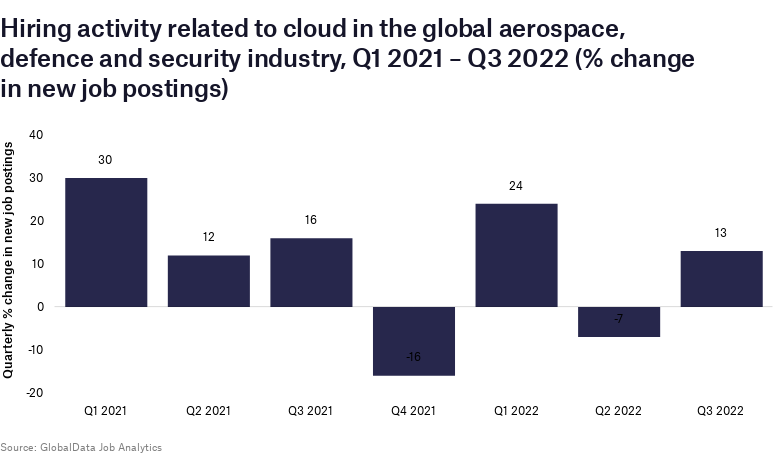The global aerospace, defence and security industry experienced a 3% drop in new job postings related to space economy in Q3 2022 compared with the previous quarter, according to GlobalData’s Jobs Analytics. This compares to a 3% decrease in the previous quarter and an 175% increase versus Q3 2021.
Notably, Software and Web Developers, Programmers, and Testers jobs accounted for an 11% share of the global aerospace, defence and security industry’s space economy-related total new job postings in Q3 2022, down 7% over the prior quarter.
Software and Web Developers, Programmers, and Testers, with a share of 11%, emerged as the top space economy-related job roles within the aerospace, defence and security industry in Q3 2022, with new job postings drop by 7% quarter-on-quarter. Computer and Information Research Scientists came in second with a share of 8% in Q3 2022, with new job postings drop by 8% over the previous quarter.
The other prominent space economy roles include Aerospace Engineers with a 6% share in Q3 2022, Electrical and Electronics Engineers with a 4% share of new job postings.
The top companies, in terms of number of new job postings tracked by GlobalData, as of Q3 2022 were L3Harris Technologies, Northrop Grumman, Boeing and Blue Origin. Together they accounted for a combined share of 4% of all space economy-related active jobs in the aerospace, defence and security industry.
L3Harris Technologies posted 3,327 space economy-related new jobs in Q3 2022, Northrop Grumman 2,893 jobs, Boeing 1,497 jobs, and Blue Origin 1,339 jobs, according to GlobalData’s Job Analytics.
The largest share of space economy-related new job postings in the aerospace, defence and security industry in Q3 2022 was in the US with 92% followed by France (5%) and the UK (1%). The share represented by the US was -2% lower than the 94% share it accounted for in Q2 2022.
More Jobs
View More
Who’s hiring who? Hiring activity related to governance increased by 7% in the aerospace, defence & security industry in Q3 2022


